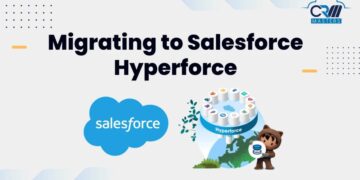Artificial Intelligence (AI) and automation are fundamentally Publication transforming the workforce, redefining job roles, skill requirements, and employment trends. Industries across the globe are integrating AI-driven technologies to enhance efficiency, productivity, and decision-making. However, this rapid technological evolution presents both opportunities and challenges, particularly regarding employment displacement, the creation of new job roles, and the need for workforce reskilling. The 2nd International Conference on Engineering, Management, and Social Sciences (ICEMSS 2025) provides a critical forum for interdisciplinary discussions on how AI and automation are reshaping the labor market and the strategies required for workforce adaptation.
The Impact of AI and Automation on Employment
AI-driven automation is revolutionizing various sectors, including manufacturing, healthcare, finance, retail, and logistics. While some job roles are becoming obsolete due to automation, new roles requiring advanced digital skills are emerging. Understanding these employment shifts is crucial for businesses, policymakers, and educators.
1. Job Displacement and Job Creation
AI and robotics are automating repetitive, routine tasks, leading to job losses in certain industries. For example, automated assembly lines in manufacturing and AI-powered chatbots in customer service are replacing traditional human roles. However, new jobs are being created in areas such as AI development, machine learning, cybersecurity, and data analytics. The World Economic Forum estimates that by 2025, automation will displace approximately 85 million jobs but create around 97 million new roles, emphasizing the need for workforce adaptability.
2. Changing Workforce Dynamics
The integration of AI is leading to a shift in workforce dynamics, where human employees collaborate with intelligent systems. Many industries are witnessing the rise of augmented workforces, where AI assists humans in complex decision-making processes rather than replacing them entirely. For instance, AI-driven diagnostic tools in healthcare support doctors by analyzing medical data more efficiently.
The Role of Skill Development in an AI-Driven Economy
As AI adoption accelerates, the demand for new skill sets is increasing. Employees must develop competencies in digital literacy, analytical thinking, and problem-solving to remain relevant in the job market. Organizations and educational institutions must focus on skill enhancement programs to bridge the knowledge gap.
1. Reskilling and Upskilling Initiatives
Governments and corporations are investing in large-scale reskilling initiatives to help employees transition into AI-compatible roles. Many leading technology firms have introduced AI and automation training programs, equipping workers with the necessary expertise to thrive in the digital economy. For instance, Google’s AI training programs and IBM’s AI Skills Academy offer specialized courses for professionals.
2. The Rise of Lifelong Learning
In the age of AI, continuous learning has become a necessity. Employees are encouraged to embrace lifelong learning through online courses, workshops, and professional certifications. Platforms such as Coursera, Udemy, and LinkedIn Learning provide AI and automation courses tailored to industry needs.
3. Education System Adaptation
To prepare future generations for an AI-driven workforce, academic institutions must integrate AI-related subjects into their curricula. Universities are increasingly offering degree programs in artificial intelligence, robotics, and data science to ensure that graduates are equipped with the skills demanded by the modern job market.
AI’s Influence on Organizational Behavior and Work Culture
Beyond employment trends, AI is transforming the internal functioning of organizations. From AI-driven recruitment processes to enhanced workplace productivity, businesses are leveraging automation to optimize their operations.
1. AI in Talent Acquisition and Human Resource Management
AI-powered algorithms are streamlining hiring processes by analyzing resumes, assessing candidates’ skills, and predicting job performance. Automated HR systems are also improving employee engagement through AI-driven feedback mechanisms and personalized career development plans.
2. Remote Work and AI-Powered Collaboration Tools
The COVID-19 pandemic accelerated the adoption of remote work, and AI continues to play a crucial role in enabling virtual collaboration. AI-driven tools such as virtual assistants, automated scheduling software, and smart communication platforms are enhancing remote work efficiency.
3. AI for Workplace Productivity and Innovation
AI-driven automation enhances workplace productivity by reducing human errors and improving operational efficiency. Companies utilizing AI-powered data analytics gain deeper insights into business performance, leading to informed decision-making and innovative strategies.
Ethical and Societal Implications of AI in Employment
While AI presents numerous advantages, ethical and societal concerns regarding its implementation must be addressed. Issues such as job inequality, data privacy, algorithmic bias, and ethical AI usage require regulatory frameworks and responsible AI governance.
1. Ensuring Ethical AI Deployment
Organizations must prioritize ethical AI practices by ensuring transparency in AI-driven decision-making. Addressing algorithmic bias is crucial to prevent discriminatory hiring practices and unfair workplace evaluations.
2. Bridging the Digital Divide
Not all regions and demographic groups have equal access to AI-driven opportunities. Governments and businesses must work together to reduce the digital divide by providing access to digital education and technology infrastructure in underserved communities.
3. Regulatory Frameworks for AI and Employment Laws
Policymakers are introducing regulations to govern AI-driven employment transformations. Laws addressing AI ethics, worker protection, and automation taxation are being discussed globally to ensure that technological advancements benefit society as a whole.
The Role of ICEMSS 2025 in Addressing AI and Workforce Transformation
The ICEMSS 2025 conference plays a pivotal role in bringing together researchers, industry leaders, and policymakers to discuss AI’s impact on employment and skill development. Key discussion points at the conference include:
- The future of employment in AI-driven industries
- Workforce reskilling strategies for the digital era
- The role of AI in shaping organizational culture and leadership
- Ethical considerations and AI regulation in the workplace
- Collaborative approaches to ensure inclusive AI adoption
By fostering interdisciplinary collaboration, ICEMSS 2025 aims to develop sustainable strategies for managing workforce transformation in the age of AI.
Conclusion
Artificial Intelligence and automation are redefining employment trends and workforce skill requirements. While AI-driven job displacement is a challenge, it also presents new opportunities for skill enhancement and professional growth. Organizations must embrace workforce transformation through reskilling initiatives, lifelong learning programs, and AI-driven workplace innovations. Ethical AI deployment and regulatory frameworks will play a crucial role in ensuring that AI benefits all sectors of society. Through ICEMSS 2025, stakeholders from engineering, management, and social sciences can collaboratively explore solutions to navigate the evolving workforce landscape in an AI-powered world.


























